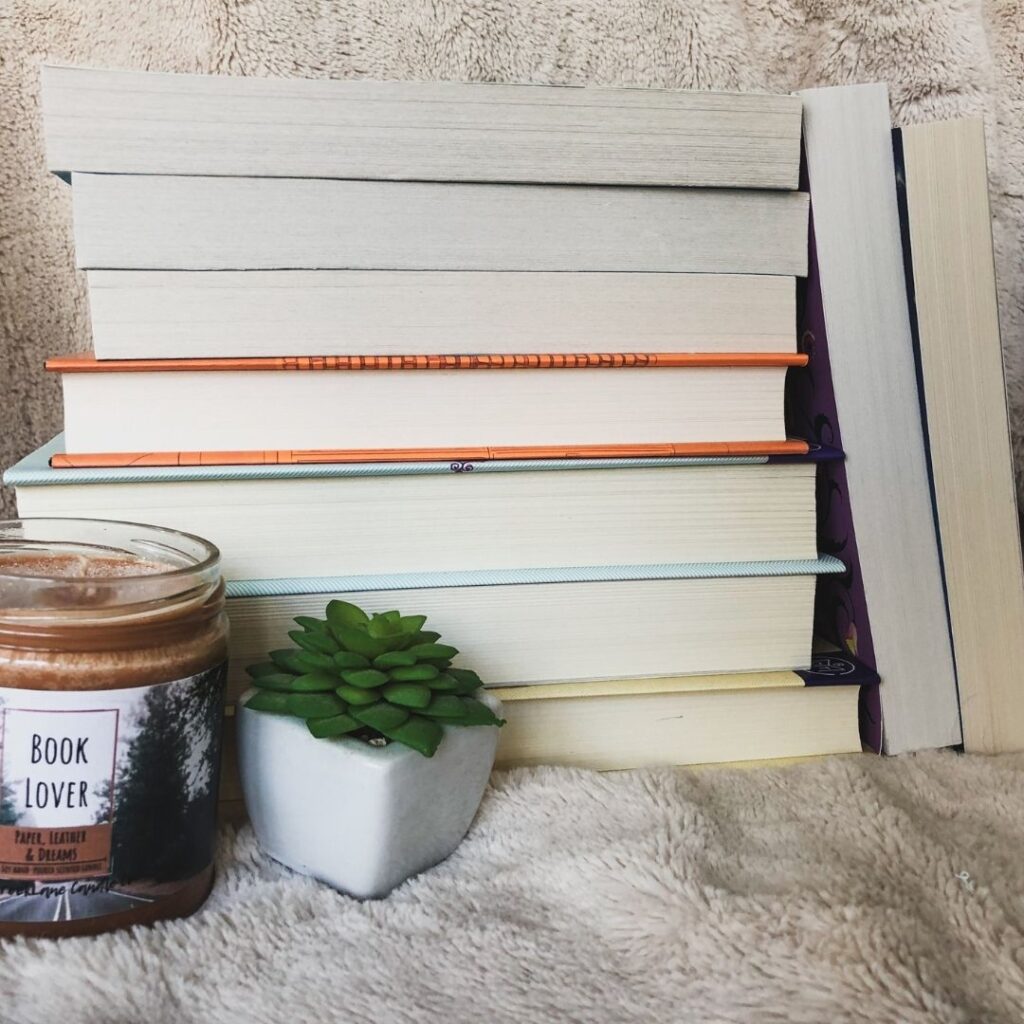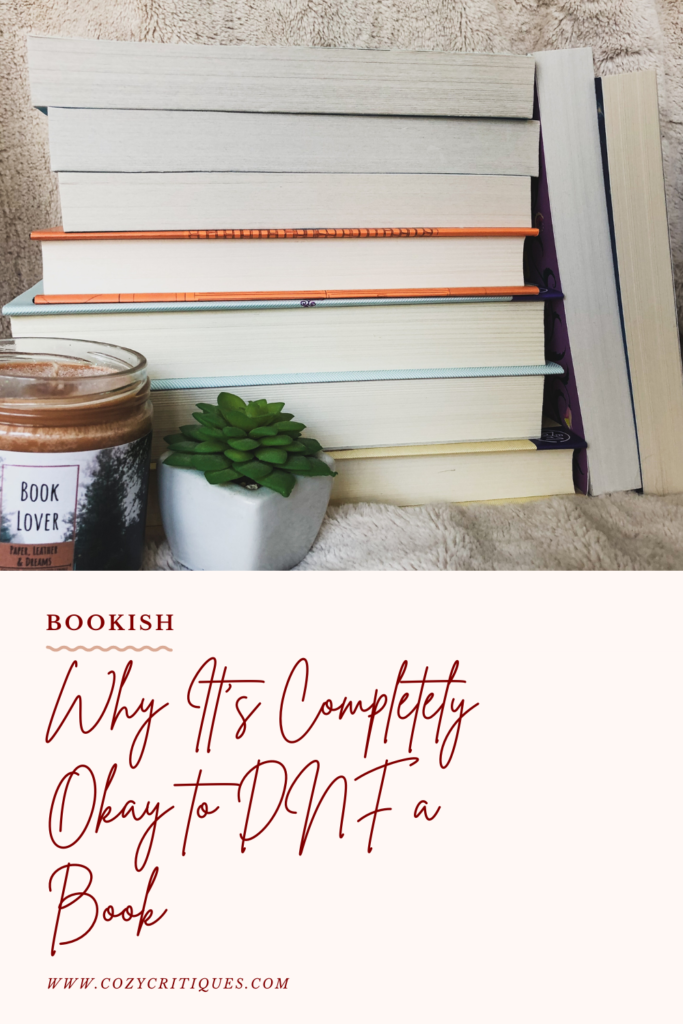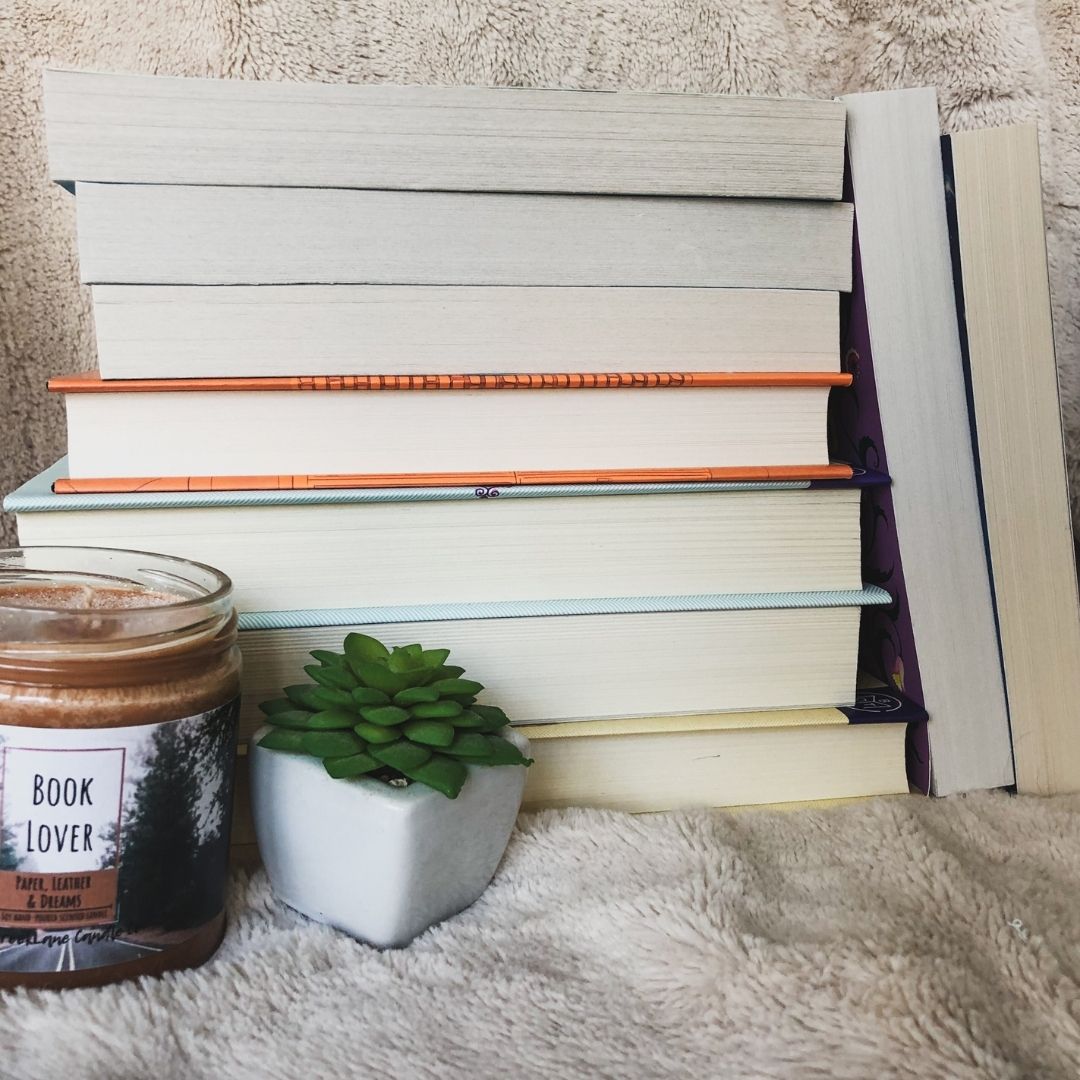This post may contain affiliate links. If you make a purchase through these links I will earn a small commission at no additional cost to you. Read the full disclosure here.

If you’re a member of the bookish social media community, you know two things:
- We love our acronyms and
- That the question of whether or not to “DNF” a book is a pretty heavily debated one.
I fully land on the pro-DNF side of this debate, so I thought I would provide my two cents on the topic.
But before I get into that, if you aren’t as well-versed in bookish acronyms, I’m sure you’re wondering what DNF stands for.
DNF stands for did not finish. Basically, this means you are putting the book down with no intention of picking it up ever again. This differs from putting a book down for a short period to possibly read something else that you are more in the mood for (see my thoughts on multi-book reading here).
So, why would someone decide to DNF a book?
There is a multitude of reasons. It could be outside of their comfort genre. The book wasn’t what they thought it would be like when they picked it up (this is one of the big reasons I end up DNFing books). It could contain material that is triggering. It could be problematic.
All of these are entirely valid reasons not to finish reading a book, but honestly, a person doesn’t even have to have a concrete reason to DNF. They could simply not vibe with the writing style, characters, or plot. And that’s ok.
But why is there a big debate around this?
I don’t know the real answer, but I do have a theory: most people assume that because a person DNFs a book, it means it’s a bad book, which is simply not the case. For the most part, people DNF books because the book doesn’t speak to them. This doesn’t mean it’s a bad book. There are plenty of objectively good books that I have not enjoyed. Not every piece of media has to appeal to every single person. Some media was not created for you, and that’s ok.
And this isn’t only for books. People DNF television shows all the time. You just stop watching it when it’s no longer enjoyable to you. So if you’re reading books for the same reason you watch television—for your enjoyment—then why would you force yourself to keep reading when, if it was a tv show, you would have stopped watching?
As I said in my introduction, I’m pro-DNFing a book. That being said, though, I don’t go around DNFing books left and right willy-nilly.
So the question becomes, how do I decide when to DNF a book?
I try to give myself at least until the 25% mark before I DNF a book. I want to provide the book with time to grab me. I also do this to see if maybe some of the problems I have with it start to resolve once I start getting attached to the characters or invested in the storyline. However, sometimes I will decide way before the 25% mark that I will put it down if the book does something to actively turn me off.
When I decide to DNF a book, I also don’t just put it down, move it to my DNF shelf on Goodreads and StoryGraph, and forget about it. I try to figure out what it was about the book that I didn’t like. This way, I have a better idea of what I do like so that the books I pick up are ones I will more likely enjoy.
This brings me to my final point question. Can you review a book that you DNF?
This will depend on your own policy. But I’d argue that you should still be able to review a book based at least on what you read. I still review books I DNF, but I have a few guidelines in place.
- I do not bash the author or people who enjoy the book in my review. This doesn’t mean I’m not critical in my reviews, but I try to frame any critiques I have constructively.
- I will point out what I did like because it’s rare that I hate everything about a book from page 1 to wherever I end up DNFing it.
These are both things I also make sure I do when I write a review of a book that I did finish but didn’t overall enjoy. - I don’t post my reviews as separate entries on my blog or on my Instagram or TikTok. I still post them in my monthly wrap-ups and on Goodreads and StoryGraph, but this is mostly for my own records. Also, if it was an ARC, I will submit my review to the publisher. If I DNF a book, it’s because the things I do not like outweigh the things I do like, and I don’t want to share that kind of potential negativity in a place where authors are more likely to see it. It’s easier for authors to avoid reviews on Goodreads and StoryGraph, but social media is another beast entirely.
So, there are my thoughts on the topic of DNFing books. I know not everyone agrees, but I think it ultimately doesn’t matter. If DNFing a book will make you happier, then do it. If you can’t stand the idea of leaving a book unfinished, then don’t!
So, there you have it! Some benefits of and tips for reading more than one Do you DNF books?

Pin it!
